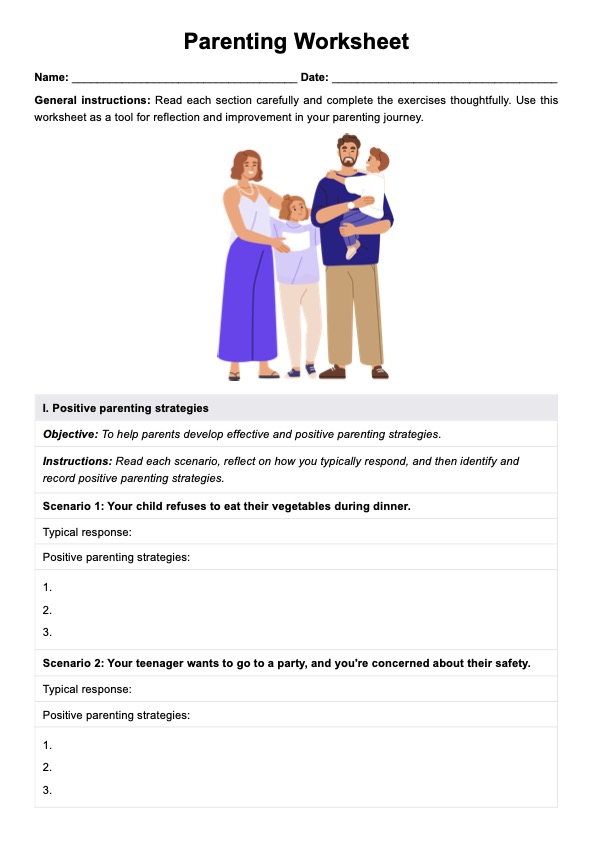A Parenting Worksheet can help with a child's behavior by providing practical ideas for positively guiding them. It allows parents to reflect on their approach, set clear expectations, and create consistent rules. Using the worksheet regularly can reduce stress and encourage healthier habits in kids.

Parenting Worksheets
Get our free Parenting Worksheet to strengthen your client's parenting skills, improve communication, and build a positive parent-child relationship.
Parenting Worksheets Template
Commonly asked questions
Parents, caregivers, and professionals such as therapists and counselors can all find value in these tools. They offer structured ways to explore parenting strategies, improve communication, and strengthen family bonds. Whether someone is a new parent or experienced, these worksheets provide fresh ideas for handling different challenges.
These worksheets break down parenting tasks into manageable steps, helping to create a clear plan. By having a structured approach, parents can feel more confident and less overwhelmed in their daily routines.
EHR and practice management software
Get started for free
*No credit card required
Free
$0/usd
Unlimited clients
Telehealth
1GB of storage
Client portal text
Automated billing and online payments











